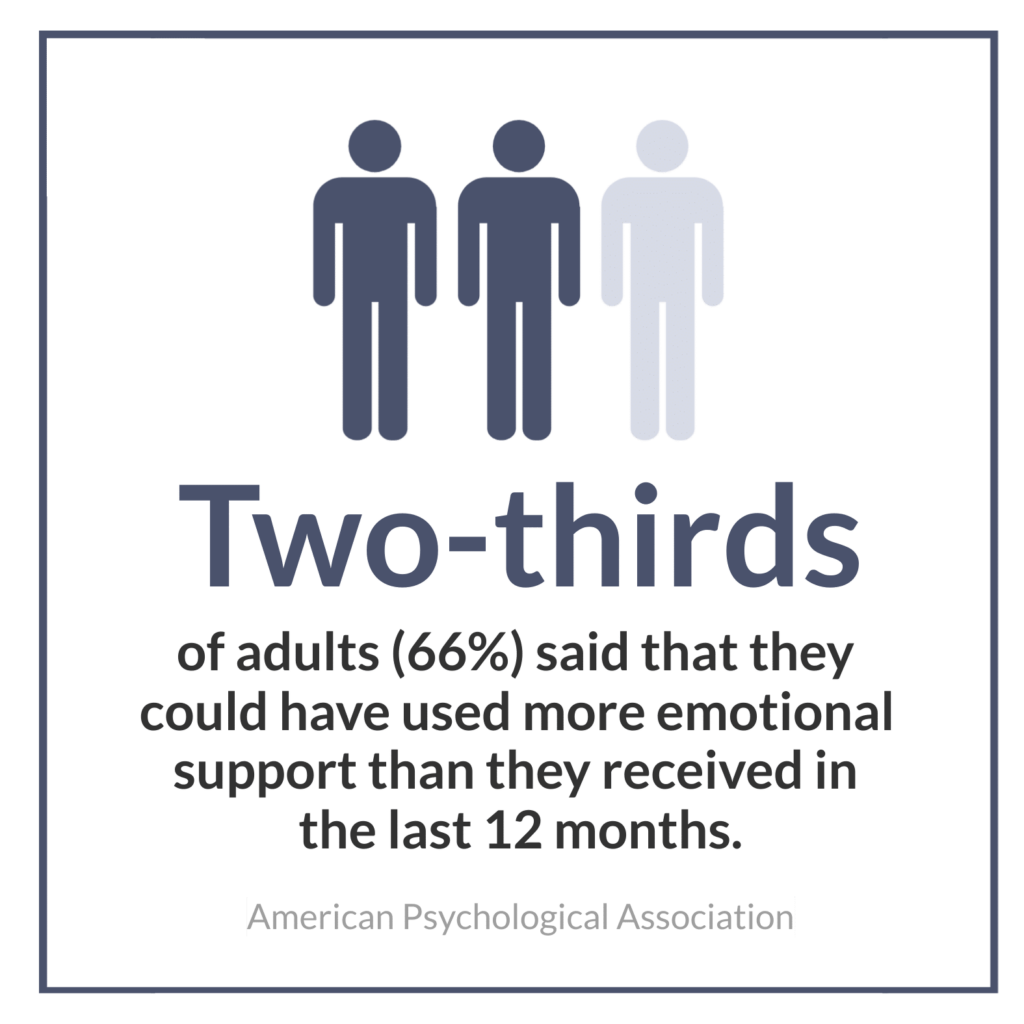By Alanna Hilbink
When life is hard, it’s tempting to “tough it out” and hope things get better on their own. But ignoring problems rarely creates a solution. When it comes to your mental health, this is especially true. Professional help exists for a reason, and it can give you back an emotionally and mentally healthy life.
Signs You Need Mental Health Support
The Centers for Disease Control and Prevention shares that one in five adults has a mental illness, and one in 25 has a serious mental illness. Some of the most common include stress, anxiety, and depression. By taking a closer look at these mental health concerns, you can see if any of the signs and symptoms fit what you’re experiencing — and if so, you can learn how seeking help can benefit you.
Do I Need Help for Stress?
Stress can indicate underlying mental health issues, or it can come from external factors like jobs, financial worries, or concerns about safety and the future. Stress can make you forgetful, unable to concentrate or make decisions, or so overwhelmed you can’t function. You may also experience physical effects like fatigue, headaches, and changes in sleeping patterns. The American Psychological Association (APA) explains that stress can even contribute to a weakened immune system, heart disease, and stroke.

Despite the physiological impact of stress, the APA shares two-thirds of adults (66%) said that they could have used more emotional support than they received in the last 12 months. A little more than a quarter (26%) expressed the need for a lot more support. If you aren’t getting the mental health support you need, it’s time to ask for help so you can live a healthy, less stressful life.
Do I Need Help for Anxiety?
The Anxiety & Depression Association of America (ADAA) reveals that 19.1% of the adult population is affected by an anxiety disorder. Yet only 36.9% of those individuals get mental health treatment. Anxiety disorders include generalized anxiety disorder (GAD), panic disorders, social anxiety disorder, post-traumatic stress disorder (PTSD), obsessive-compulsive disorder (OCD), and more.
Because “anxiety” covers such a wide scope of symptoms and disorders, it can be hard to list every possible sign that may indicate you need help. However, in general, if you find worry overtaking your life or getting in the way of daily activities, or if you avoid uncertainty, situations, or opportunities because of anxiety, consider professional help.
Do I Need Help for Depression?
Gallup found that depression rates in the United States are now the highest they’ve ever been with 29% of adults having been diagnosed with depression at some point in their lives and 17.8% currently struggling. And this is just those with a diagnosis, those who recognized they may need help and talked with a medical or mental health professional.
So if you experience any of the following, you are not alone:
- Feelings of sadness, loneliness, or emptiness
- Lost interest in the hobbies, activities, or even people that once brought you joy
- Feeling worthless or guilty
- Changes in energy levels, including slowed speech and lethargy or increased agitation and irritability
- Changes in sleep or eating patterns
Any and all depression symptoms can be mitigated with the right therapy options. When you notice depression symptoms, speak up, and get back your interest and energy for life.
Any and all depression symptoms can be mitigated with the right therapy options. When you notice depression symptoms, speak up, and get back your interest and energy for life.
Why Don’t People Ask for Professional Help?
There are a lot of barriers to mental healthcare, and many of them work to convince you you don’t need help. A big one of these is stigma. Because of stigma, we may have misconceptions about who needs help, what help involves, and what asking for help may project about us as individuals.
For example, the APA explains that people often don’t seek help because others expect them to just “get over it” — because they don’t think their concerns are “bad enough” — or they believe they don’t have the time or money for treatment. Social stigma makes us feel judged for struggling, for asking for help, or for even feeling what we’re feeling in the first place. But listen to yourself when things feel off. It never hurts to talk with a professional and ask questions about your symptoms, what treatment involves and what it can do, and how professional programs can work with you, your schedule, and your finances to make recovery a possibility.
Many people do not know what their therapy options are, what’s right for them, or where and how to get help. But don’t worry if you don’t have the answers, that’s what professionals are for. Speak with your doctor and get recommendations. Consider virtual treatment from home. Call us at The Meadows — even if you don’t need our more intensive outpatient or inpatient care — we are more than happy to talk with you and put you in touch with the right resources, such as local therapy, neurodevelopmental treatment, or one of our own programs.
When Is the Right Time to Ask for Mental Health Support?
There is no wrong time to seek help. You can ask for help when your stress or anxiety feels “small.” Or you can ask for help after years of letting mental health or addiction take over your life. The right time to ask is now. When you choose professional help from resources like The Meadows, you get customized attention and care. We will meet you where you are, no matter where that is.

